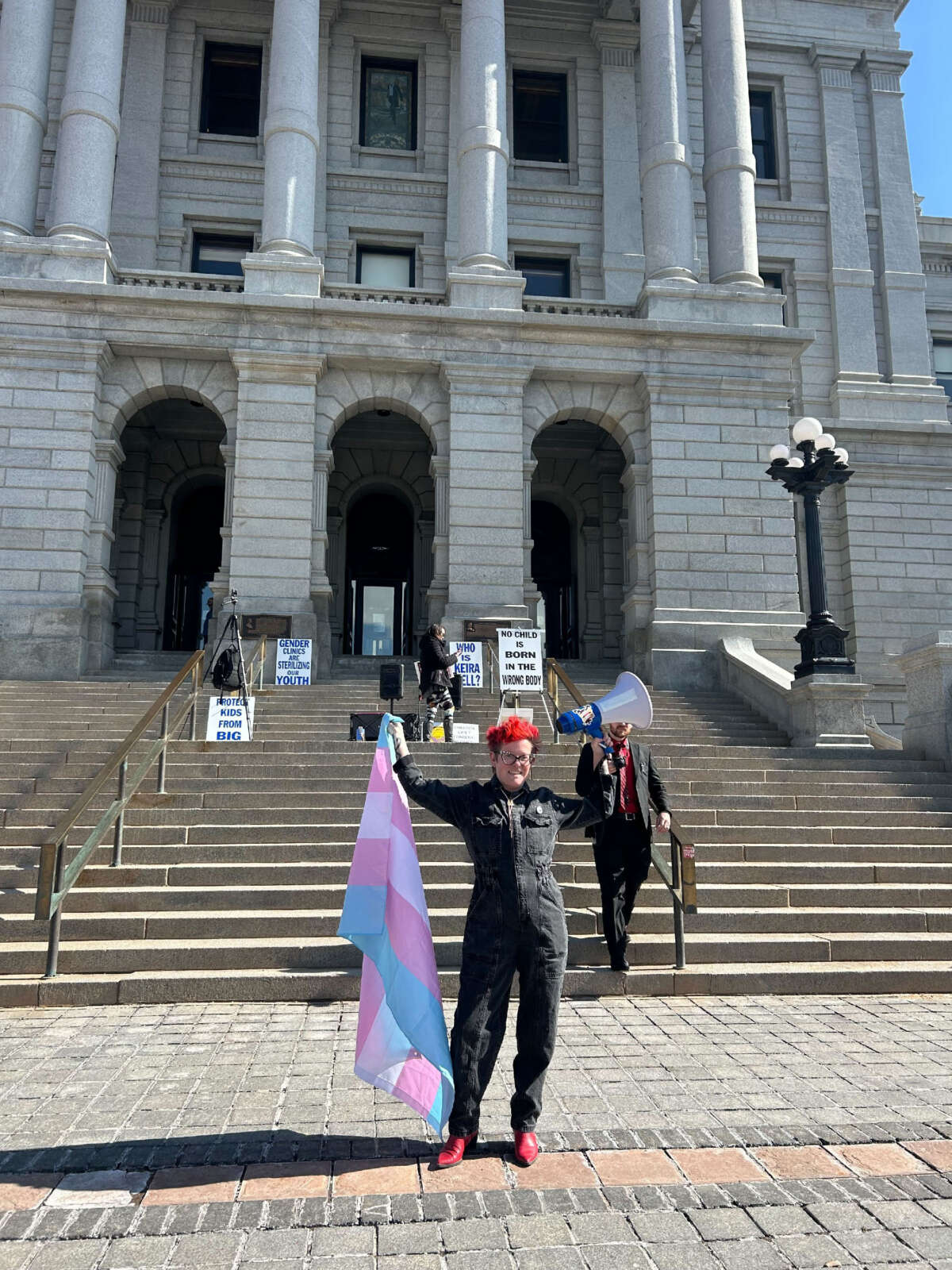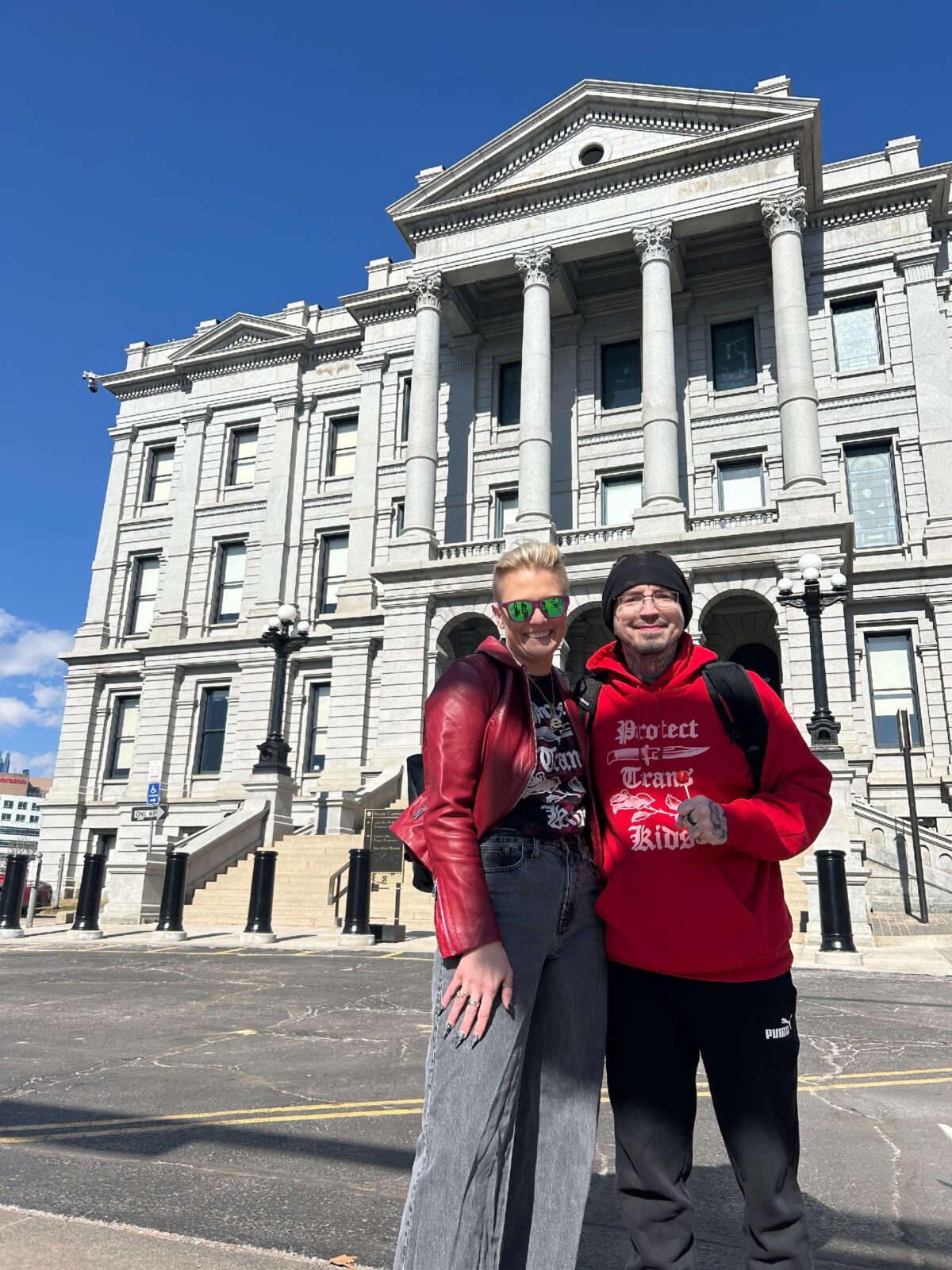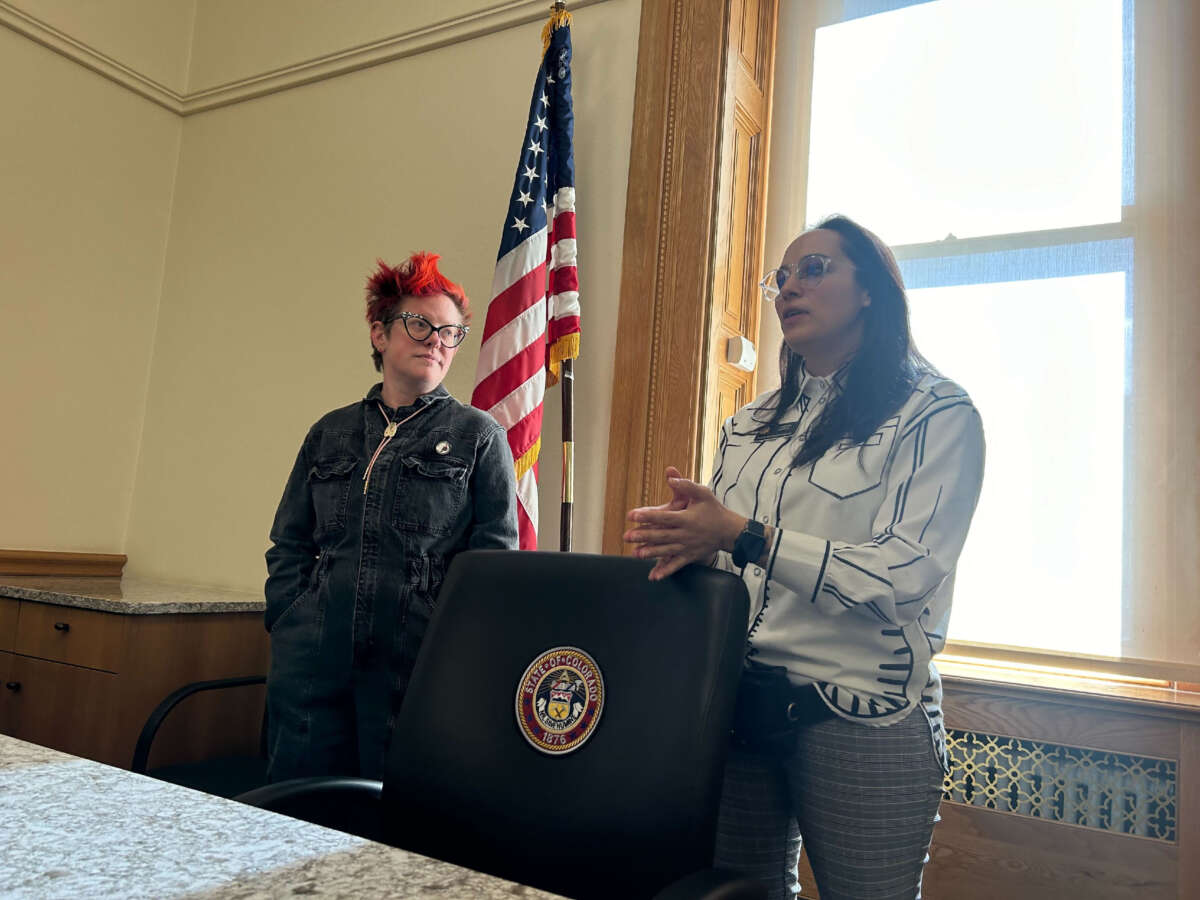Transgender advocates and allies rallied at the Colorado state capitol on Thursday in support of two bills, HB24-1071 and HB24-1039, which would clarify laws to ensure that transgender people’s names are respected.
Currently under Colorado law, a person must show good cause in order to change their name if they have been convicted of a felony. HB24-1071, also called Tiara’s law, would expand good cause to include changing one’s name to align with their gender identity. Although transgender people with felony convictions already have the ability to change their name in Colorado, prevailing stereotypes regarding people with felonies, along with systemic judicial barriers faced by trans people overall, pose significant challenges to this process.
“A name can be a gift, but a name is sometimes what you give yourself when you take the steps to live your authentic life,” Z Williams, Director of Client Support and Operations at the Denver-based nonprofit Bread and Roses Legal Center, said at the rally.

In fact, most Colorado nonprofits that support transgender people in navigating the already difficult name change process exclude trans people with felonies because of these obstacles. Bread and Roses Legal Center has filled this gap by supporting transgender people with felonies throughout the name change process, and is working with Colorado lawmakers to expand the already-existing law to include gender identity as a good cause for consideration by the courts.
Being forced to use a legal name that doesn’t correspond with a person’s gender identity doesn’t just cause mental strain — it also exposes trans people to discrimination and harassment in housing and health care, and makes engaging with law enforcement more dangerous.
Opponents of the legislation have issued comments drenched in white supremacist and carceral rhetoric, with infamous right-wing social media account Libs of Tiktok pushing its followers to harass and dox transgender advocates. These anti-trans critics falsely claim that the bill provides an opportunity for individuals with felony records to elude law enforcement and will diminish community safety. However, the bill simply introduces a minor adjustment to existing law by including gender identity as a factor for the court to consider when evaluating name change petitions.
“People with felony convictions are part of our community too,” Williams said. “When people cannot survive above ground they learn to survive underground.”
Advocates of this bill recognize that because of discrimination and harassment, nearly one in two Black transgender women have been incarcerated in their lifetime, often for survival-based charges, like sex work. Felony convictions pose an additional threat to the safety of this vulnerable population, underscoring the critical need for trans people to have access to name changes.
“When you center trans voices you are inherently centering people at the front lines of poverty, food, and incarceration,” Williams said. “You are pushing the most marginalized people to the front.”
Tiara Latrice Kelley, the face of the bill, is a Black transgender woman who worked at Club Q during the anti-LGBTQ shooting in 2022. The bill is important to her because it shows that transgender people deserve “to be visible, to be seen, and to say that we are not going anywhere and deserve equality,” she said.
Kelley helped Bread and Roses contact the survivors of the Colorado Springs shooting to provide them with resources and support. During the aftermath of the massacre, Bread and Roses discovered that survivors suffered additional harm due to inadequate education among victim support groups about the different challenges encountered by the transgender community in comparison to cisgender victims. Moreover, survivors from Club Q realized that the primary route to accessing state resources after the crisis was through engagement with the police system, which exacerbated distress for communities already subjected to disproportionate policing. Demands that survivors disclose their deadname on forms to access resources further exacerbated trauma.
“Queer spaces and trans spaces and drag culture are under attack even in a ‘safe state’ like Colorado,” Williams said. “I hope I can rally in you a sense of how urgent these things are — because my friends are dying. My family is dying. So, it is dire but we also have a lot of power here.”

Transgender advocates also attended a hearing regarding bill HB24-1039, a bill that would mandate that public and charter schools adopt a student’s chosen name and change discrimination law to include any refusal to do so by a school as an act of discrimination. The sponsor of the bill, Rep. Stephanie Vigil (D), noted that it is especially crucial because the right-wing extremist group Moms for Liberty, which recently secured positions on a Colorado school board, ran on a platform advocating for deadnaming and outing transgender students.
“Whether it’s Tiara’s law or youth being respected, it’s ridiculous that we need to pass laws to respect basic human dignity. But history prevails,” said Rep. Lorena García (D), the sponsor for Tiara’s Law.
Join us in defending the truth before it’s too late
The future of independent journalism is uncertain, and the consequences of losing it are too grave to ignore. We have hours left to raise the $12,0000 still needed to ensure Truthout remains safe, strong, and free. Every dollar raised goes directly toward the costs of producing news you can trust.
Please give what you can — because by supporting us with a tax-deductible donation, you’re not just preserving a source of news, you’re helping to safeguard what’s left of our democracy.
